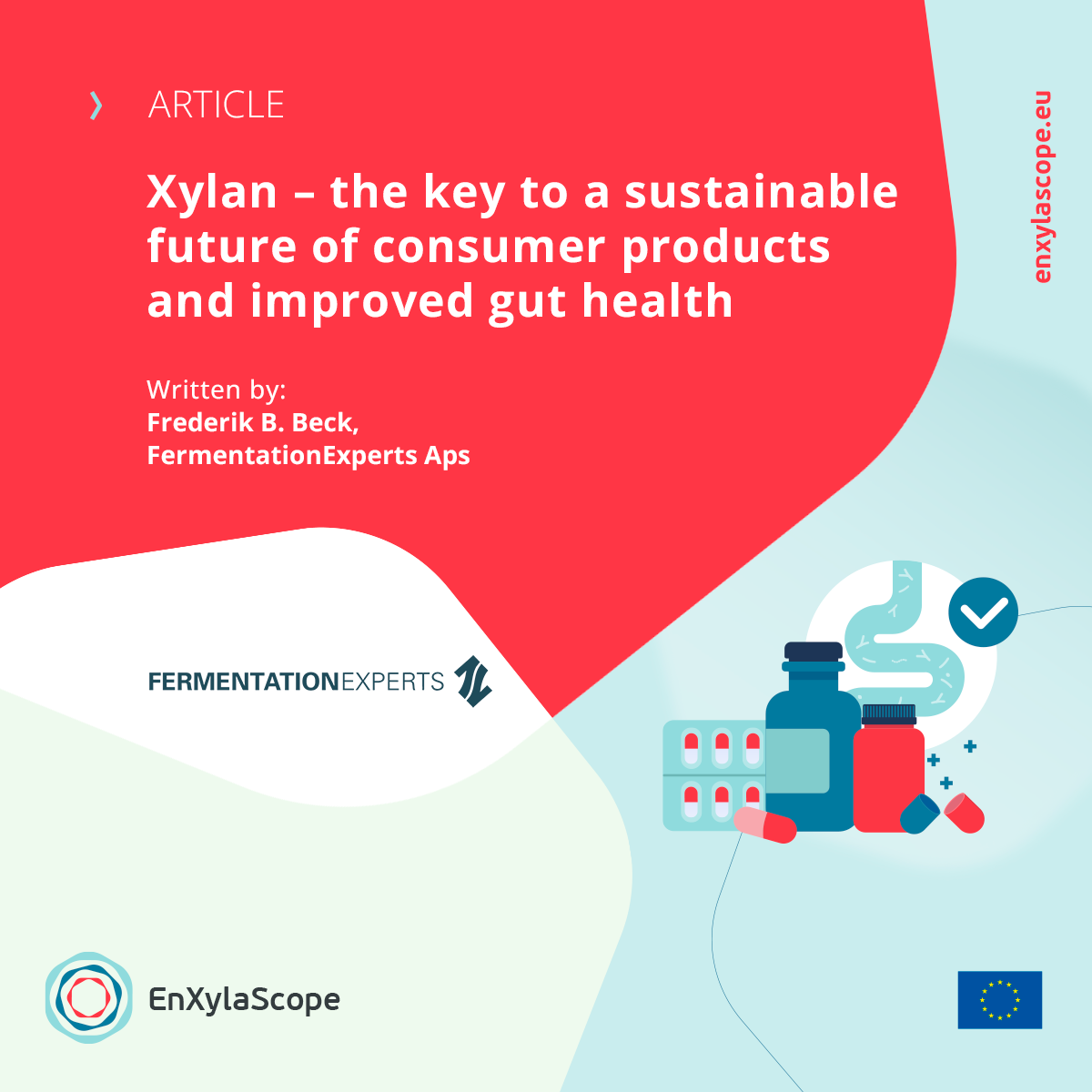27 December 2022
Research within the field of nutrition and gut health, has shown a substantial number of connections between the food we consume, the composition of microbes residing in our gut and our overall health and wellbeing. With that in mind we seek to develop new nutritional strategies to ensure a healthy gut for both humans and livestock. We believe that the key to a sustainable future and improved gut health is to be found within the third most abundant biopolymer on earth: Xylan.
Several studies underline the effect of supplemented xylo-olgiosaccahrides and its gut modulatory potential. It has been shown that the mentioned supplementation can shift the composition of the gut microbes towards a healthier state, in which pathogenic bacteria have a harder time establishing a niche and by that infection in the delicate tissue of the gut epithelial surface. This happens due to growth promotion of commensal bacteria in the gastrointestinal tract, that outcompetes the disease-causing bacteria, the causative agents of a long range of illnesses such as inflammatory bowel disease and gastric cancer.
In our upcoming research we will dig deeper into the application of xylans, and especially the enzymatically upgraded water insoluble xylans (WP5). We intend inoculate human and porcine fecal matter with the mentioned xylans both alone and in combination with a range of fermented plant materials, to investigate the potential synergistic effect. The fecal matter will be transferred to our in vitro colon model, in which we can explore changes in the microbial composition, based on next-generation sequencing. Furthermore, we will be able to investigate the fermentative and metabolic potential as we likewise track the formation of Short-Chain Fatty-acids (SCFA) produced by the bacteria.
Additionally, we will also investigate the immunological response of the host (WP6), when we culture human and porcine intestinal model cells in presence of different upgraded xylan variants. The immunological response will be tracked via RNA-sequencing and antibody-reactive assays.
These studies combined will give us a picture of how nutrition, gut residing microbes and the host are connected and how the addition of specifically designed xylan-variants potentially will improve the health of both the gut community and the host itself. Furthermore, we will be able to select the best candidate supplements in combination with fermented plant material and produce new food- and feed supplements that will contribute to increased gut health and a sustainable future of consumer products.





